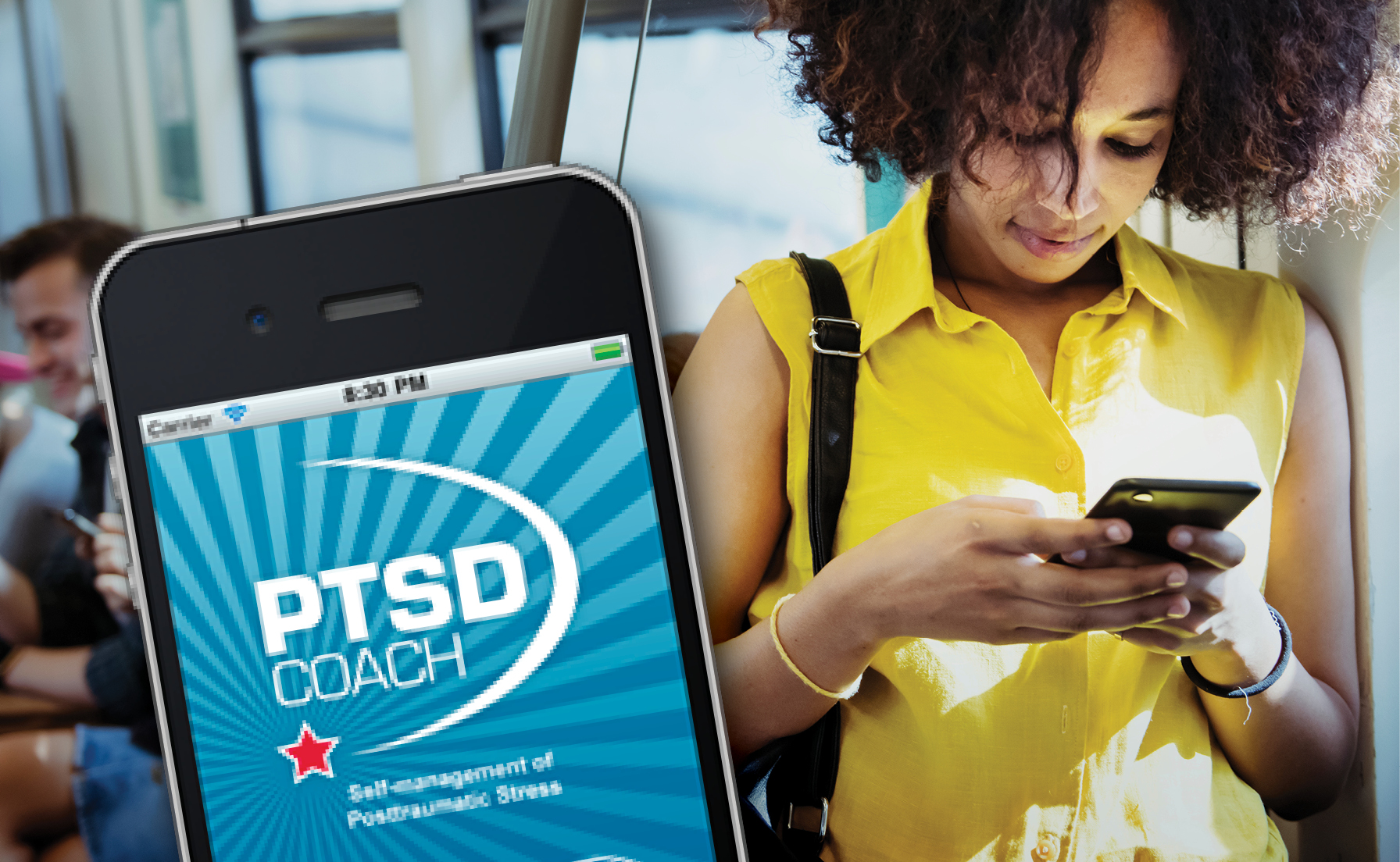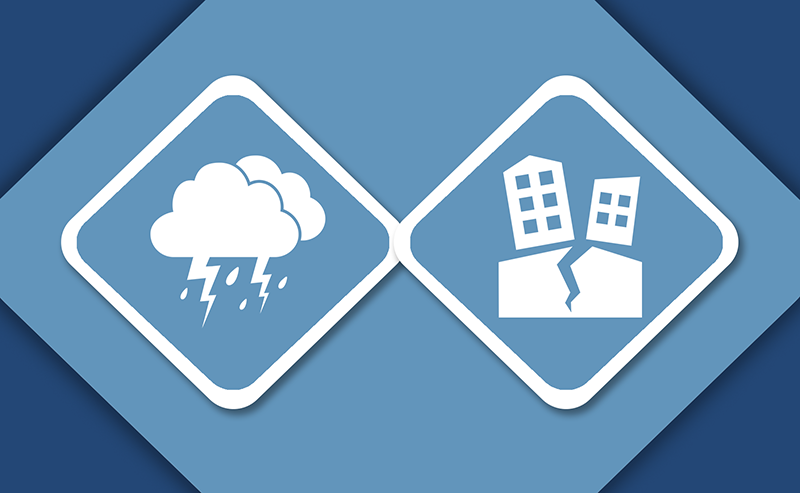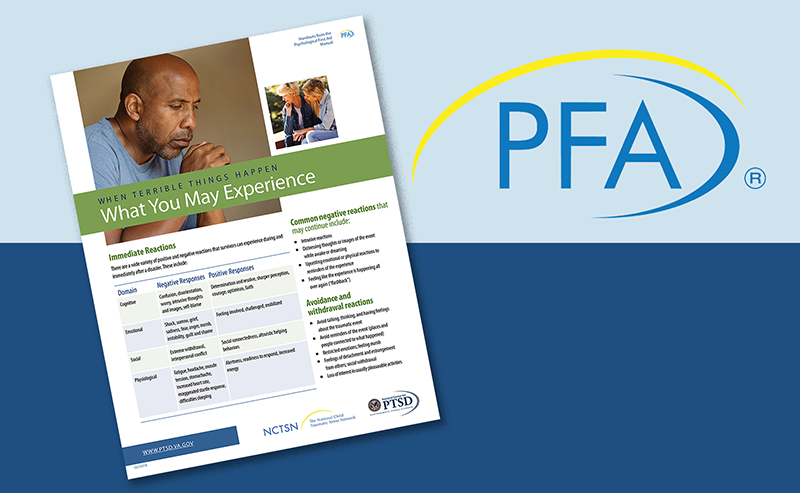PTSD: National Center for PTSD
Tips for Providing Support to People Affected by Disaster Events
Tips for Providing Support to People Affected by Disaster Events
Available en Español
Offering support to others after a disaster event can make a difference in meaningful ways. Learn some simple tips and examples to open a discussion with someone you want to support.
Reading time: minutes
Helping others and providing support can make a difference for someone who is having a difficult time during or after disaster events. Disaster events include natural or human-caused disasters, mass violence, or public health emergencies, like disease outbreaks, chemical spills, or radiation emergencies. Following disasters, there are simple ways to talk with others that show support. Use the table to identify potential ways to show empathy and care and adapt the examples to match your personality and relationship.
| Ways To Encourage Discussion | Examples |
|---|---|
| Behaviors |
|
| Reflective Comments |
|
| Supportive Comments |
|
| Empowering Comments / Questions |
|
Using these examples can help you to have more empathic, supportive discussions with people. Remember, there is no perfect support. Often the person just needs to know that someone cares enough to listen if they are able to talk about their concerns. Even a short check-in can be helpful in showing someone they are not alone and that others care about them. These types of support can help to reduce their sense of isolation or distress in the wake of disaster events, and may empower them to take positive steps in their life that can help them feel better.
Source
These tips are adapted from Skills for Psychological Recovery (SPR), which offers skill-building techniques like problem-solving, positive activity scheduling, reaction management, and healthy social connection development.
You May Also Be Interested In


























